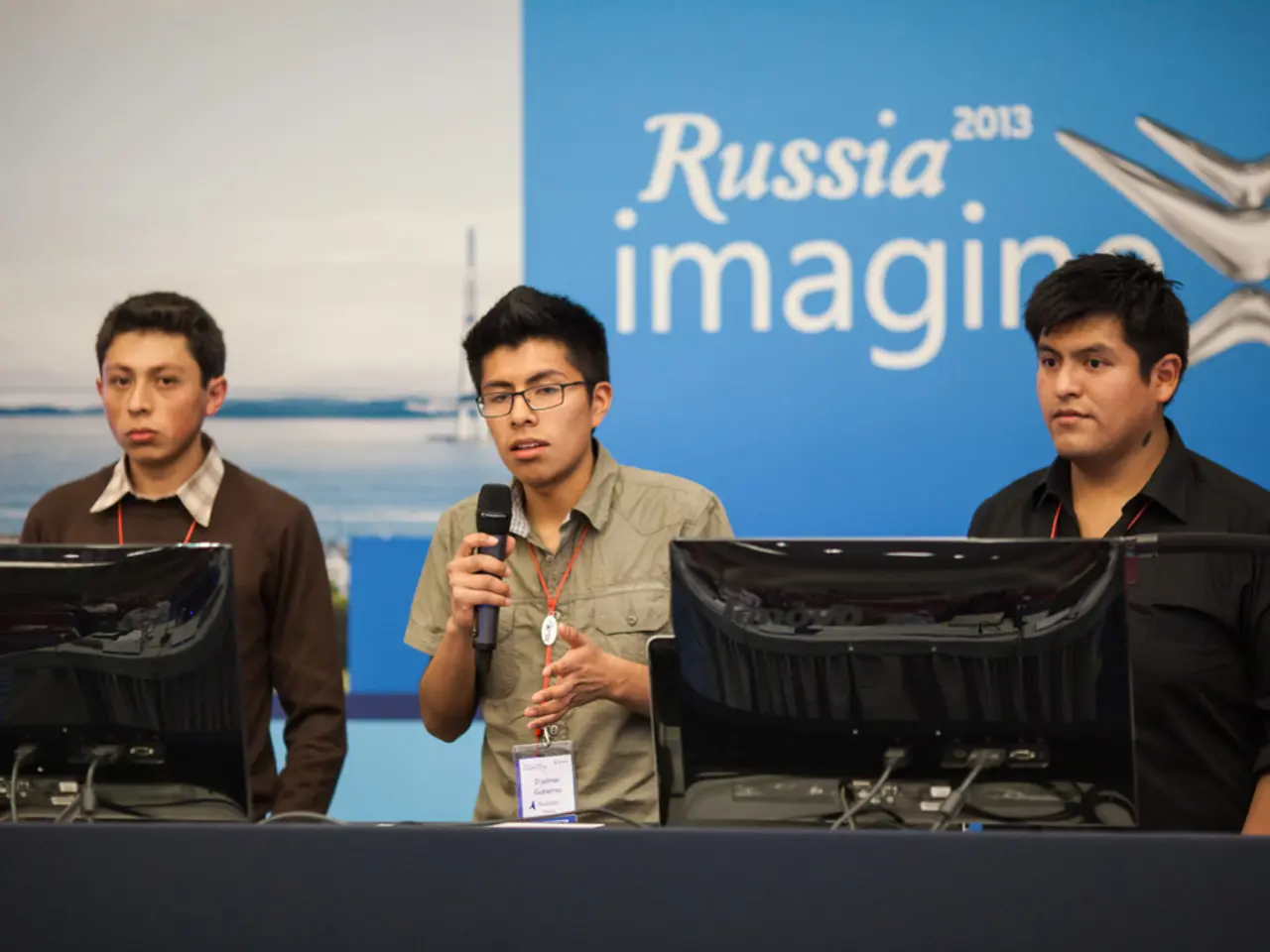AI's Real-Time Transformation of Silicon Valley's Workforce: Unveiling the Great Tech Reckoning
In the dynamic world of technology, 2025 has witnessed a significant transformation with the widespread adoption of Artificial Intelligence (AI). This shift is marked by accelerated automation, job displacement, and the creation of new roles requiring advanced technical skills.
The tech giants, such as IBM, Indeed, and Glassdoor, have led this change by implementing AI in their operations. For instance, IBM has replaced around 8,000 employees from its HR department with an internal AI chatbot called AskHR. Similarly, Microsoft reported a 13% increase in revenue in the first quarter of 2025 but cut over 15,000 jobs, reflecting a trend of growth amidst staff reduction.
This automation is particularly noticeable in back-office roles, with tech companies like IBM aiming to replace around 30% of these positions with AI within five years. The automation wave is not confined to the tech sector alone; industries such as retail, manufacturing, and market research are also experiencing significant automation, with up to 65% of retail jobs potentially being automated by 2025 and up to 30% of manufacturing jobs automatable by the mid-2030s.
The impact of AI on the workforce is profound. Tasks such as data entry, routine analysis, and some knowledge work are increasingly automated, leading to layoffs and workforce cuts in traditional roles. However, this transition also presents new opportunities. Industries that embrace AI see 3x higher revenue growth per employee, and workers with AI skills now command significantly higher wages, enjoying a 56% premium.
The shift towards AI-centric roles necessitates workforce planning challenges. Employers must redefine team structures, upskill employees, and manage ethical considerations while optimising AI deployment. The labour market effects are also noticeable, with some workers leaving the labour force in response to AI exposure, for example, through earlier retirement.
The tech industry in 2025 faces a dual effect: enhanced productivity and cost-saving from AI automation alongside significant workforce transformation. This shift marks a move towards jobs centred on managing and working alongside AI systems rather than routine human tasks.
In conclusion, the question isn't whether AI will affect your job, but whether you'll adapt quickly enough to remain relevant in an AI-dominated economy. The bar for remaining employable in tech is rising dramatically, with 170 million new roles emerging by 2030. However, these roles require advanced technical skills, with 77% of AI jobs requiring master's degrees and 18% requiring doctoral degrees.
Sources: [1] McKinsey & Company. (2025). AI in the Workforce: The Impact on Jobs. [online] Available at: https://www.mckinsey.com/business-functions/mckinsey-analytics/our-insights/ai-in-the-workforce-the-impact-on-jobs
[2] World Economic Forum. (2025). The Future of Jobs Report 2025. [online] Available at: https://www.weforum.org/reports/the-future-of-jobs-report-2025
[3] Deloitte. (2025). The Impact of AI on the Workforce. [online] Available at: https://www2.deloitte.com/us/en/insights/topics/technology/ai-and-the-future-of-work.html
[4] Bloomberg. (2025). AI to Automate Half of All Entry-Level White-Collar Jobs Within Five Years, According to Anthropic CEO Dario Amodei. [online] Available at: https://www.bloomberg.com/news/articles/2025-03-01/ai-to-automate-half-of-all-entry-level-white-collar-jobs-within-five-years-according-to-anthropic-ceo-dario-amodei
[5] The Atlantic. (2025). The AI Economy Is Here. [online] Available at: https://www.theatlantic.com/magazine/archive/2025/04/the-ai-economy-is-here/620218/
- In the technology industry of 2025, business strategies have been revolutionized with AI valuation and scaling up marketing products.
- The widespread implementation of AI in the operations of tech giants like IBM and Microsoft has led to increased revenue, despite job reductions.
- The automation of back-office roles is a notable effect of AI, with tech companies aiming to replace around 30% of these positions within five years.
- Industries outside tech, such as retail and manufacturing, are also experiencing significant automation, potentially leading to the loss of up to 65% of retail jobs by 2025.
- Embracing AI is associated with higher revenue growth per employee in various industries, while workers with AI skills earn 56% premium wages.
- Efficient management of AI deployment involves ethical considerations, upskilling employees, and redefining team structures.
- The transformation of the workforce due to AI is challenging existing careers in favor of AI-centric roles, with 170 million new roles projected to emerge by 2030.
- To stay relevant in an AI-dominated economy, acquiring advanced technical skills will be crucial, as 77% of AI jobs are projected to require a master's degree, and 18% a doctoral degree, by 2030.



